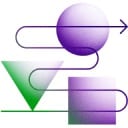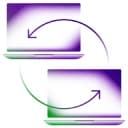Software Testing Services
Ensure your digital product works as intended across all defined scenarios with our application testing services. We help you deliver stable, high-performing, and standards-compliant software that fulfils customer expectations.
Software Testing Services We Provide
QA services are integral to the software development lifecycle, ensuring that the final product is not only free from defects but also meets the users' needs. Discover an in-depth overview of our core software testing services and capabilities, structured by their objectives, usage, and outcomes.
This service verifies that each function of the software operates in conformance with the requirement specification. It focuses on user interface, APIs, databases, and application functionalities. Functional testing services enhance customer trust and satisfaction by delivering a product that performs as expected.
Performance testing services assesses how the application performs under a specific load. It is not only about stress testing but also includes evaluating speed, scalability, and application responsiveness. Performance testing guarantees a smooth UX even during high traffic, preventing customer frustration and loss due to performance issues.
This service focuses on the user’s ease of using the application, clarity of the user interface, and overall user experience. It is crucial for ensuring the product is aligned with user expectations and preferences. Usability testing increases user engagement and retention by making the application accessible to users with diverse tech skills.
Involves the use of specialized software tools to execute a test case suite. The key advantage of automation testing is the ability to run tests quickly and repeatedly, which is essential for overall development. It also reduces time-to-market and operational costs by enabling rapid deployment of of app updates and new features.
Secures software by spotting and addressing vulnerabilities. Uses penetration tests, scanning, and risk assessments to guard against potential data breaches. Security testing also protects sensitive customer data and company reputation, crucial for maintaining user trust and complying with data protection regulations.
Compatibility testing verifies that a software application functions correctly across different devices, operating systems, and browsers. It helps expand market reach by supporting diverse user setups. This type of testing expands market reach by accommodating a diverse user base, regardless of the hardware or software environments they prefer.
Performed after making changes to the code, to make sure that the changes don’t adversely affect the existing functionality of the software. It’s crucial for maintaining stability through the SDLC. Regression testing maintains software integrity through development cycles, ensuring a stable product that supports business growth.
Exploratory testing relies on the tester’s creativity, experience, and intuition to identify problems. It focuses on learning the system, designing cases on the fly, and adapting to findings in real time. This service is particularly useful for discovering edge cases, gaps in requirements, and unexpected behaviors that structured testing might miss.
Compliance testing services verify that the software meets the required standards and regulations. This typically includes data privacy norms, security requirements, industry-specific standards, and accessibility regulations.
Explore how our software testing services has helped clients overcome critical quality challenges — from improving defect detection in complex systems to ensuring compliance and reliability across evolving digital platforms.
Why Romexsoft is the Right Choice as a Quality Assurance Service Company
We prioritize behavioral adherence ensuring that your software aligns with expected user experience, business logic, and sector-specific quality benchmarks. From early-stage validation to continuous integration-ready automation, Romexsoft equips your team with the assurance needed to launch software confidently.
Our experts take an environment-aware approach to implementation and QA, validating performance, compatibility, and reliability across all systems.
We deliver comprehensive test coverage across all aspects of your application: functionality, performance, security, and usability.
Our QA build flexible, automation-driven testing frameworks that adapt to emerging tools, platforms, and development practices.
Learn How Outsourcing QA Gives Your Business an Edge
Schedule a call with our team of software testing professionals to get more insight about QA services for your applications and infrastructure.
Software Testing Services Practical Applications
If a Software as a Service (SaaS) or Platform as a Service (PaaS) provider encounters challenges in handling high user demand or complex operations, software testing is crucial to ensure that platforms can manage increased workloads without compromising functionality and customer experience.
Implementing rigorous quality assurance measures can significantly enhance system responsiveness and reliability. This leads to improved user satisfaction and trust in the SaaS or PaaS offerings, potentially increasing user adoption and reducing system downtimes.

In scenarios where an application, regardless of its industry, needs to comply with specific regulatory standards and data protection laws, thorough validation and testing become indispensable. This is essential for ensuring that the app adheres to industry-specific regulations and maintains user trust.
Meticulous testing processes will guarantee that the application meets all necessary compliance criteria, safeguarding both user data and the provider’s reputation. This approach to compliance helps in avoiding legal complications and enhancing overall user confidence in the application.
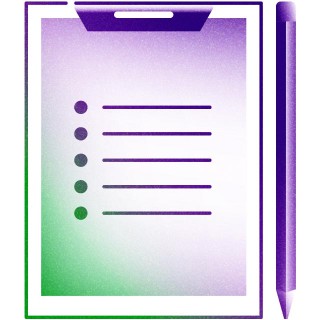
When any application, whether it’s a mobile, web, or desktop software, is set to integrate new features, it’s vital to ensure that these enhancements do not disrupt the existing functionalities. This scenario calls for systematic software testing to manage the seamless addition of new elements.
Proper software validation guarantees that new features are incorporated without impacting the core functions of the application. This approach results in a harmonious blend of new and existing features, maintaining application stability and user satisfaction.
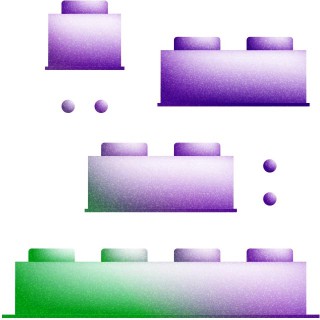
When a mobile developer aims for uniform performance across various devices and operating systems, cross-platform testing becomes necessary to to ensure consistent functionality and interface aesthetics across various operating systems and devices.
This situation necessitates thorough cross-platform testing to guarantee that the app delivers a seamless and uniform experience, irrespective of the user’s device choice. Such testing not only ensures operational consistency but also fosters positive engagement and broader acceptance among users.

For the startups navigating fast-paced and competitive markets, speeding up the development phase while maintaining high product quality is crucial. This situation requires strategic implementation of test automation and efficient continuous development practices.
Adopting test automation as an integral part of their development stage can significantly reduce the time-to-market for those startups. This approach ensures that apps not only meet stringent quality standards but also keep pace with rapid industry advancements and emerging market trends.
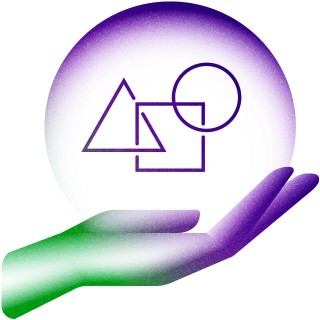
In the process of modernizing legacy applications, it’s essential to ensure that updated systems not only integrate new functionalities but also retain their core operational integrity. This scenario demands meticulous testing to manage the transition smoothly.
Employing in-depth QA services in software modernization process ensures that updated systems function seamlessly with enhanced features while maintaining the reliability of the original application. This strategic approach minimizes disruptions and maximizes the benefits of the digital transformation.
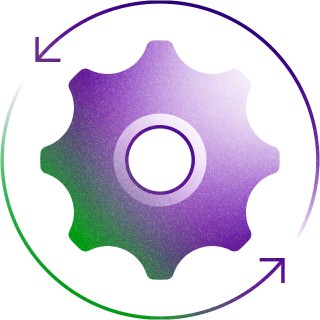
How We Achieve Testing Excellence
Reaching mastery requires a collaborative effort, clear communication, and a shared accountability for product integrity. Our approach in quality engineering ensures your vision is realized without compromise, giving your users the reliable experience they deserve. Here’s how we work with our clients to ensure strict quality requirements in software testing.
Every project is unique, and so are its testing requirements. We work closely with your team to understand your business goals and technical constraints. Based on these insights, we craft tailored testing strategies that prioritize the most critical aspects of your software.
We embrace agile testing practices to adapt quickly to changes in requirements or scope. This ensures that our processes of testing remain aligned with possible evolving needs of the project, reducing defect costs and delivering reliable results without delays.
Our experts embed directly into the development team, participating in sprint planning, daily meetings, and code reviews. This collaboration ensures real-time feedback, early issue detection, and a shared commitment to delivering high-quality software.
Our ultimate goal is to ensure your software meets top-tier criteria of quality. With rigorous testing, collaborative workflows, and a strong focus on reliability, we help you launch confidently, knowing your application performs as designed under all conditions.
Measuring Testing Progress & Output
We rely on well-defined metrics to evaluate the effectiveness and advancement of our validation processes. These indicators provide actionable insights, helping teams to stay on track and ensure high-quality delivery.
Choose From A Variety Of Hiring Models for Quality Engineering
Choose the most suitable engagement model — whether you need comprehensive quality assurance, usability testing, testing support, or expert consulting.
Software Testing Toolkit We Use
Frequently Asked Questions
The services involve evaluating and verifying a software to ensure it meets the desired standards of quality. These services cover a diverse set of testing types, including functional, performance, security, usability, and compatibility. The goal is to identify and fix defects, ensure the software performs as intended, and provide a seamless experience for end-users. The services are essential for delivering reliable, secure, and high-quality applications.
Choosing the right vendor for testing your software is crucial for ensuring the quality, reliability, and security of entire application. Here are some factors to consider when choosing a company for such type of work:
Expertise and experience
Look for a company that has expertise and experience in the type of testing you need. Check their website and portfolio to see their track record and the types of clients they have worked with.
Process and methodology
Check whether the company follows a well-defined sequence and methodology as well as tools and technologies to perform testing. A really mature and established workflow should be documented, repeatable, and scalable.
Certifications and standards
Check whether the company has any relevant certifications and follows industry standards such as ISO and CMMI. This shows their commitment to quality and continuous improvement.
Communication and reporting
Look for a company that communicates effectively and provides regular updates and reports on the testing progress. They should also be responsive to your queries and concerns.
Pricing and contract terms
Check the company's pricing and contract terms to ensure that they are transparent and flexible. Be cautious of vendors with unclear pricing models or rigid engagement conditions that limit flexibility.
Customer reviews and testimonials
Check online reviews and testimonials from previous customers to get an idea of the company's reputation and level of customer satisfaction.
No, QA (Quality Assurance) is not the same as software testing. Testing is a part of QA activities. QA involves verifying and validating the development operations and ensuring that the software product meets the desired quality standards. QA activities include various stages such as planning, defining, designing, executing, and reporting on the quality of the application. It aims to prevent defects and errors by identifying and eliminating the root cause of the problem.
On the other hand, application testing is a part of the quality assurance that involves executing application to find defects, errors, and bugs in the final product. It is a process of validating and verifying the functionality, performance, security, usability, and compatibility of the app. Testing is done to identify defects and ensure that the product meets the standards set by the organization.
In the context of SaaS (Software as a Service), QA stands for Quality Assurance and means ensuring the software functions correctly, meets user expectations, and remains reliable, secure, and scalable through continuous testing and validation.. This includes testing for bugs, usability issues, and performance problems, as well as ensuring that it is secure and meets any relevant regulatory or compliance requirements.
In the SaaS context, quality assurance service is particularly important because customers rely on the service to perform critical functions, and any issues with the service could have significant consequences. SaaS companies typically have dedicated quality teams and processes in place to ensure that their products and services meet the necessary quality benchmarks and are able to meet the needs of their customers.
Explore the following resources to gain deeper insights into quality assurance services and discover how managed testing can improve the reliability, security, and efficiency of your software.


